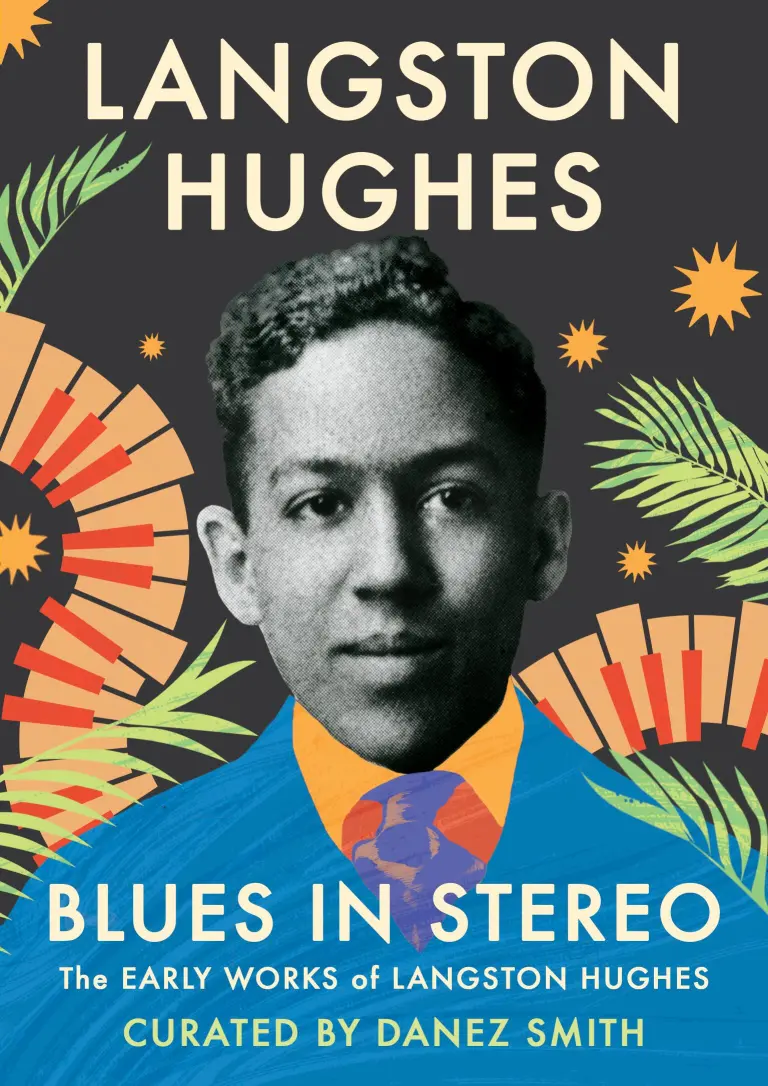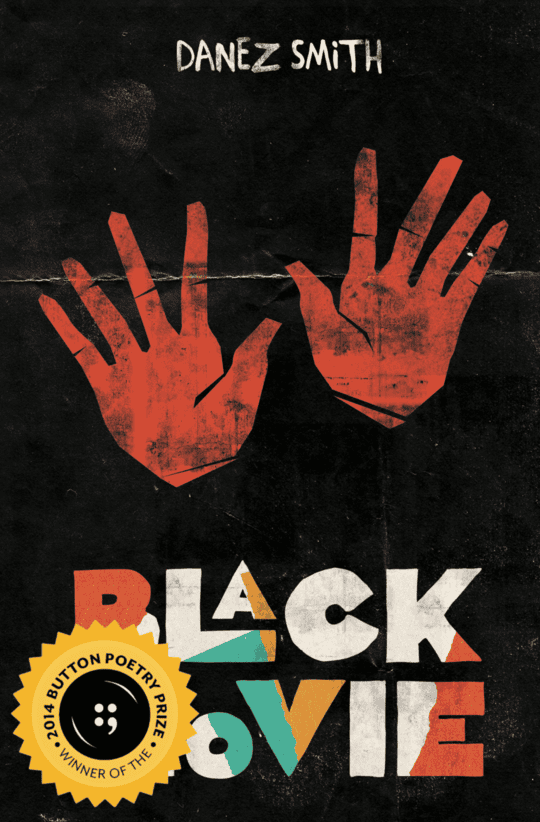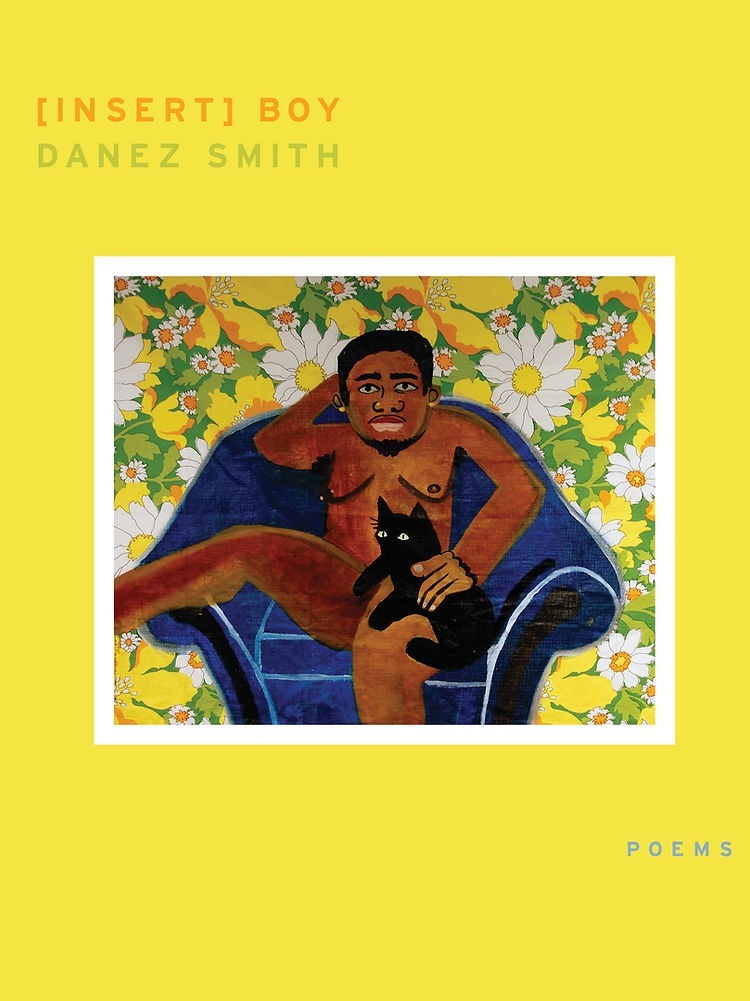

Danez Smith
Forward Prize-Winning Poet
National Book Award Finalist
Finalist for Pulitzer Prize
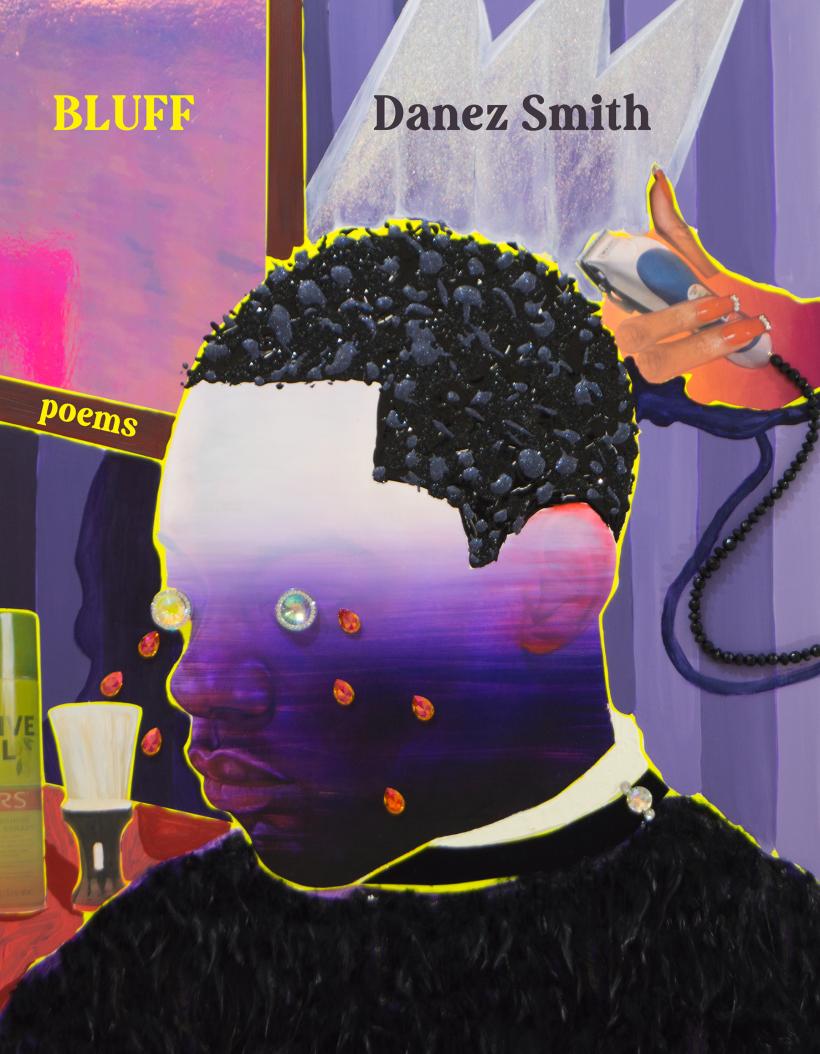
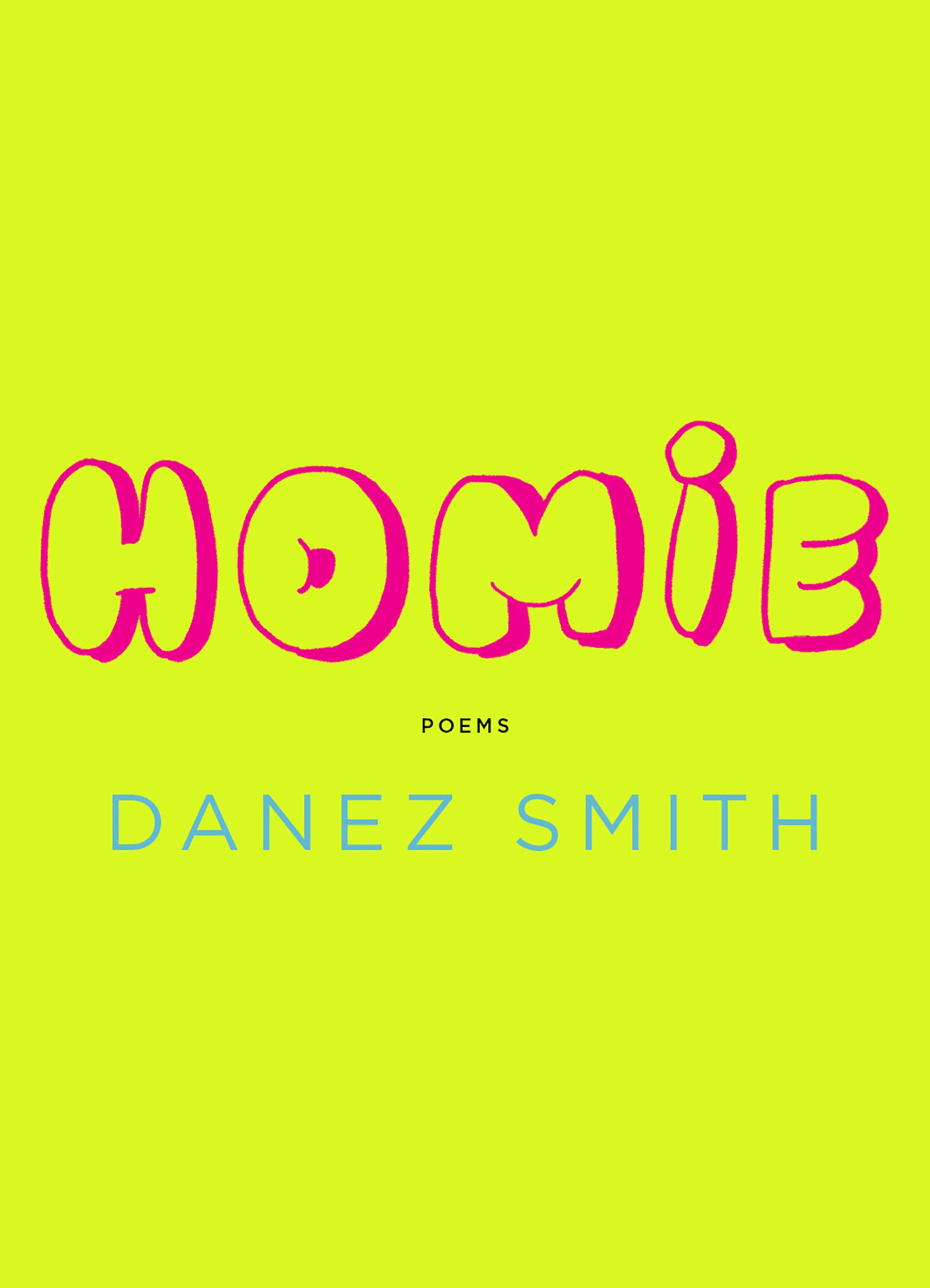
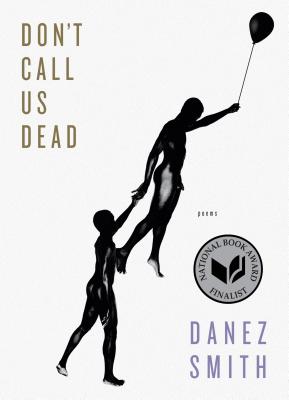
Readings &
Lecture Topics
- An Evening with Danez Smith
- Personal Machines: On Invented Form
- Everything is Political: Making Art to Engineer Change
- Everything is Love: How Love and Poetry Can Change The World
Biography
“I think of Smith as one of the most important American poets writing today… No account of twenty-first-century literature, should it be written, could be complete without an account of their influence.” —Alexander Chee
“[Smith’s] poems are enriched to the point of volatility, but they pay out, often, in sudden joy.” —The New Yorker
“In the world of Smith’s poems, love is abundant: these poems love Black people, queer people, God, kin and self and strangers alike.” —Lauren K. Alleyne
Danez Smith was born in St. Paul, Minnesota. As a poet, performer, and cultural critic, their work transcends arbitrary boundaries to present art that is gripping, dismantling of oppression constructs, and striking on the human heart. Smith is the author of four poetry collections, including Bluff (Graywolf Press, 2024), which won the Minnesota Book Award for Poetry, was nominated for the NAACP Image Award and Anisfield-Wolf Book Award, and was a finalist for the Pulitzer Prize in poetry. The collection is described as a book of “searching, stunning poems” where “Smith metaphorizes city into body politic, showing us the interstate running through all our hearts; demonstrating that we all contain protest and police, cowardice and commitment, money and kindness, looting and food drives,” according to Nam Le at The New York Times Book Review; Homie (Graywolf Press, 2020), which won the Minnesota Book Award, the Heartland Bookseller Award, and was a Finalist for both the National Book Critics Circle Award and the NAACP Image Award; Don’t Call Us Dead (Graywolf Press, 2017), which was a Finalist for the National Book Award and winner of the Forward Prize; and [insert] boy (YesYes Books, 2014), winner of the Lambda Literary Award and the Kate Tufts Discovery Award. They have also published two chapbooks, Black Movie (Button Poetry, 2014), which won the 2014 Button Poetry Prize, and hands on ya knees (Penmanship Books, 2013). Most recently, Smith edited Blues in Stereo: The Early Works of Langston Hughes (Hachette, 2024).
Smith’s writing has appeared in Vanity Fair, The New York Times, The New Yorker, GQ, Best American Poetry, Lit Hub, on The Late Show with Stephen Colbert, and in many other outlets. As a spoken word poet and performer, Smith uses rhythm, fierce, raw power, and image to re-imagine the world as they take it apart in their work. They were Individual World Poetry Slam finalist in 2011 and received Second Place at Individual World Poetry Slam in 2014. Smith is a four-time Rustbelt Individual Champion and was festival director for the Brave New Voices International Youth Poetry Slam in 2014. They were a featured performer at Louisiana Literature Festival in Denmark (2024), London Literature Festival (2024), Poesia Barcelona (2023), and the Queer Contact Festival in Manchester, UK (2011); they were also a featured poet at Nuyorican Poets Cafe (2014), Split This Rock Festival (2014), FAMU Younger Poets Series (2015), and Brave New Voices (2014).
Smith has been featured on Forbes’s annual 30 under 30 list and has received a National Endowment for the Arts literary grant, a Princeton Arts Fellowship (2020-2022), a United States Artist Fellowship (2020), the Ruth Lilly and Dorothy Sargent Rosenberg Fellowship (2014), and fellowships from the McKnight Foundation, Cave Canem, and Voices of Our Nation (VONA). They are winner of the 2014 Paris American Reading Series and were a Finalist for both the Norma Farber First Book Award and the Debutlitzer prize in 2015. Smith was also featured in the Academy of American Poets’s Emerging Writers Series by National Book Award Finalist, Patricia Smith.
Smith earned a BA from the University of Wisconsin-Madison, where they were a First Wave Urban Arts Scholar. From 2017 to 2021, they were a co-host of the Poetry Foundation’s podcast, VS, and are a founding member of the multi-genre, multicultural Dark Noise Collective, a group which aims to help poets find common ground in their commitment to using art as a site for radical truth telling. Smith teaches at the Randolph College MFA program and the Black Youth Healing Arts Center in St. Paul, and lives in Minneapolis with their people.
Short Bio
Danez Smith is the author of four collections including Don’t Call Us Dead, Homie, and, most recently, Bluff. They are also the curator of Blues In Stereo: The Early Works of Langston Hughes. For their work, Danez has won the Forward Prize for Best Collection, the Minnesota Book Award in Poetry, the Lambda Literary Award for Gay Poetry, the Kate Tufts Discovery Award, and have been a finalist for the NAACP Image Award in Poetry, the National Book Critics Circle Award, the National Book Award, as well as an array of grants, fellowships, and residencies including a National Endowment for the Arts Fellowship and the Princeton Arts Fellowship. Smith teaches at the Randolph College MFA program and the Black Youth Healing Arts Center in St. Paul, and lives in Minneapolis with their people.
Visit Author WebsiteVideos
Publications
Bluff
Poetry, 2024
“I am going on record—Bluff is the best collection of the year, and the best collection Danez Smith has ever written. These are poems you are going to want to share with everyone you know, and everyone you don’t.”—Ronnie K. Stephens, The Poetry Question
Written after two years of artistic silence, during which the world came to a halt due to the COVID-19 pandemic and Minneapolis became the epicenter of protest following the murder of George Floyd, Bluff is Danez Smith’s powerful reckoning with their role and responsibility as a poet and with their hometown of the Twin Cities. This is a book of awakening out of violence, guilt, shame, and critical pessimism to wonder and imagine how we can strive toward a new existence in a world that seems to be dissolving into desolate futures.
Smith brings a startling urgency to these poems, their questions demanding a new language, a deep self-scrutiny, and virtuosic textual shapes. A series of ars poetica gives way to “anti poetica” and “ars america” to implicate poetry’s collusions with unchecked capitalism. A photographic collage accrues across a sequence to make clear the consequences of America’s acceptance of mass shootings. A brilliant long poem—part map, part annotation, part visual argument—offers the history of Saint Paul’s vibrant Rondo neighborhood before and after officials decided to run an interstate directly through it.
Bluff is a kind of manifesto about artistic resilience, even when time and will can seem fleeting, when the places we most love—those given and made—are burning. In this soaring collection, Smith turns to honesty, hope, rage, and imagination to envision futures that seem possible.
Blues in Stereo: The Early Works of Langston Hughes
Poetry, 2024
From Harlem Renaissance poet Langston Hughes, a stunning collection of early works written from 1921-1927 and curated by award winning poet and National Book Award finalist, Danez Smith. Before Langston Hughes and his literary prowess became synonymous with American poetry, he was an eighteen-year-old on a train to Mexico City, seeking funds to pursue his passion. His early poems, beloved verses like “The Negro Speaks of Rivers,” were written without formal training, often on the back of napkins and envelopes, and were inspired by the sights and sounds of Black working-class people he encountered in his early life. Blues in Stereo is a collection of these early works, in which we see Langston Hughes with fresh eyes. From the intimate pages of his handwritten journals, you will travel with Hughes outside of Harlem as he ventures to the American South and Mexico, sails through the Caribbean, and becomes the only Harlem renaissance poet to visit Africa. His poems and journal entries celebrate love as a tool of liberation. His songs showcase the musicality of verse poetry. And the collection even includes a play he cowrote with Duke Ellington with a full score that experiments with rhythm and structure. Blues in Stereo portrays a young man coming of age in a changing world. Page by page, a young, fresh-faced Hughes contends with matters beyond his years with raw talent. National Book Award-nominated poet Danez Smith offers their insight and notes on themes, challenges, and obsessions that Hughes early work contains. beautifully rendered and thoughtfully curated, Blues in Stereo foreshadows a master poet that will go on to define literature for centuries to come.
Homie
Poetry, 2020
Homie is Danez Smith’s magnificent anthem about the saving grace of friendship. Rooted in the loss of one of Smith’s close friends, this book comes out of the search for joy and intimacy within a nation where both can seem scarce and getting scarcer. In poems of rare power and generosity, Smith acknowledges that in a country overrun by violence, xenophobia, and disparity, and in a body defined by race, queerness, and diagnosis, it can be hard to survive, even harder to remember reasons for living. But then the phone lights up, or a shout comes up to the window, and family—blood and chosen—arrives with just the right food and some redemption. Part friendship diary, part bright elegy, part war cry, Homie is the exuberant new book written for Danez and for Danez’s friends and for you and for yours.
Don't Call Us Dead
Poetry, 2017
Award-winning poet Danez Smith is a groundbreaking force, celebrated for deft lyrics, urgent subjects, and performative power. Don’t Call Us Dead opens with a heartrending sequence that imagines an afterlife for black men shot by police, a place where suspicion, violence, and grief are forgotten and replaced with the safety, love, and longevity they deserved here on earth. Smith turns then to desire, mortality–the dangers experienced in skin and body and blood–and a diagnosis of HIV positive. “Some of us are killed / in pieces,” Smith writes, “some of us all at once.” Don’t Call Us Dead is an astonishing and ambitious collection, one that confronts, praises, and rebukes America–“Dear White America”–where every day is too often a funeral and not often enough a miracle.
Black Movie
Poetry, 2015
Winner of the 2014 Button Poetry Prize, Black Movie is “a cinematic tour-de-force that lets poetry vie with film for the honor of which medium can most effectively articulate the experience of Black America,” says Rain Taxi.
[insert] boy
Poetry, 2014
The poems of [insert] boy have need of the body—desire it and lament its mortality—but over and again they assert Smith’s seemingly religious belief that every sound the body makes, every word and wail, is only possible through connection to some other plane of existence. This is a lovely, voice-driven book, singing high notes sharp as a switchblade. —Jericho Brown, The Tradition
hands on ya knees
Poetry, 2013
Smith’s debut chapbook (Penmanship Books, 2013).
Articles & Audio
Read What’s In Print
- Electric Lit w/ Mandana Chaffa
- South Seattle Emerald w/ Jas Keimig
- Racket Interview w/ Deborah Copperud
- THEM Interview w/ Ashia Ajani
- Guardian/Observer Interview w/ Kate Kallaway
- National Book Critics Circle w/ Rigoberto Gonzalez
- Divedapper Interview w/ Kaveh Akbar
- Lambda Literary w/ Candice Iloh
- The Rumpus w/ Tyler Gillespie
- Publisher’s Weekly w/ Craig Morgan Teicher
Listen to Audio
Selected Writings
Read “Crying, Laughing, Crying At the George Floyd Protests in Minneapolis” in The New Yorker
Read “Last Black American Poem” in Lit Hub
Read “Colorado Springs” in The Believer
Read “Undetectable” in The New Yorker
alternate names for black boys
1. smoke above the burning bush
2. archnemesis of summer night
3. first son of soil
4. coal awaiting spark & wind
5. guilty until proven dead
6. oil heavy starlight
7. monster until proven ghost
8. gone
9. phoenix who forgets to un-ash
10. going, going, gone
11. gods of shovels & black veils
12. what once passed for kindling
13. fireworks at dawn
14. brilliant, shadow hued coral
15. (I thought to leave this blank
but who am I to name us nothing?)
16. prayer who learned to bite & sprint
17. a mother’s joy & clutched breath

